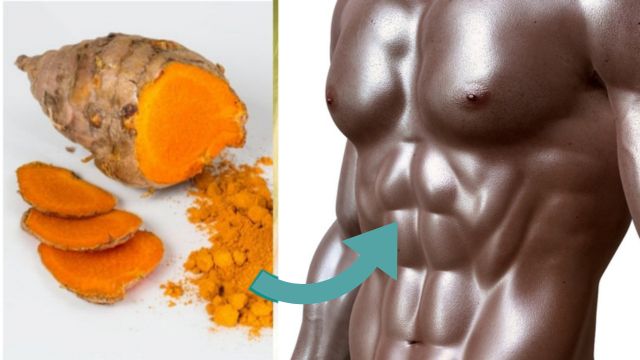Introduction
Turmeric is a spice commonly used in cooking, but it has also been used for centuries as a medicinal herb due to its many health benefits. This vibrant yellow spice contains a powerful compound called curcumin that has been studied for its anti-inflammatory, antioxidant, and immune-boosting properties.
One of the most well-known benefits of turmeric is its ability to reduce inflammation in the body. Chronic inflammation has been linked to many chronic diseases, including cancer, heart disease, and diabetes. Curcumin in turmeric has been shown to help reduce inflammation by blocking certain molecules that contribute to inflammation.
In this article, we’ll explore some additional ways that turmeric and curcumin can improve your overall health and wellness.
Turmeric: A Natural Way to Boost Your Body’s Antioxidant Capacity
- Turmeric helps to Boost Antioxidant Capacity of your Body
As we age, our bodies are exposed to free radicals – highly reactive molecules that can damage important substances like proteins, DNA, and fatty acids. This damage, known as oxidative damage, is thought to be a major contributor to many diseases and the aging process itself. Antioxidants protect our bodies from free radicals by neutralizing them.
Fortunately, antioxidants can help protect the body from free radicals. Curcumin, the active Anti-Inflammatory and Antioxidant properties in turmeric, is a powerful antioxidant that can neutralize free radicals.
Animal and cellular studies suggest that curcumin may also block the harmful effects of free radicals and even stimulate the action of other antioxidants. However, more research is needed in humans to confirm these benefits.
2. Medicinal Benefits of Turmeric’s Bioactive Compounds
Getting the full medicinal benefits of turmeric’s curcumin can be difficult just by adding it to your food as a spice. This is because the curcumin content of turmeric is low.
To improve the turmeric level into your bloodstream, curcumin can be consumed with little black paper, which contains piperine. Piperine can increase the absorption rate of curcumin by 2,000%. This is why the best curcumin supplements contain piperine, making them more effective.
Another way to improve curcumin level in body is by taking it with a meal that’s high in fat, as curcumin is fat-soluble. Therefore, taking curcumin supplements with a high-fat meal can be a good idea.
3. The Power of Curcumin: A Natural Anti-Inflammatory
Inflammation can be good for your body in the short-term, but if it becomes chronic it can cause damage and lead to serious health problems like heart disease, cancer, and Alzheimer’s disease. That’s why it’s important to find ways to fight chronic inflammation. Curcumin, a natural substance, has been shown to have anti-inflammatory properties, which could help prevent and treat these conditions. However, it’s important to note that you would need to take very high doses of curcumin to get the medicinal benefits.
4. Benefits of Curcumin in Heart Disease
Heart disease is a complicated and common cause of death worldwide. Curcumin, a natural substance found in turmeric, has been studied extensively and has been shown to have potential benefits in fighting heart disease. One of the main ways it can help is by improving the function of the endothelium, the lining of your blood vessels. This can lead to better regulation of blood pressure and other factors that contribute to heart disease. Additionally, curcumin has anti-inflammatory and anti-oxidant properties that can also play a role in reducing the risk of heart disease. In a study of people undergoing heart surgery, those who took curcumin had a significantly lower risk of experiencing a heart attack. Overall, curcumin may be a natural way to help prevent and treat heart disease.
5. Turmeric Prevent Cancer
Cancer is a disease that involves uncontrolled cell growth, and there are many different types of cancer. Curcumin, a natural substance found in turmeric, has been studied for its potential to fight cancer. Research suggests that curcumin may contribute to the death of cancer cells, reduce the growth of new blood vessels in tumors, and slow the spread of cancer. While it’s not yet clear whether high-dose curcumin can treat cancer in humans, there is evidence that it may help prevent cancer, particularly digestive system cancers like colorectal cancer. In one study, taking 4 grams of curcumin per day for 30 days reduced the number of precancerous lesions in the colon by 40%. Overall, curcumin may have the potential to be a natural tool in the fight against cancer.
6. Benefits of Curcumin in Treating Alzheimer’s Disease
Alzheimer’s disease is the most common type of dementia, and while there are treatments for some of its symptoms, there is currently no cure. However, there is hope that curcumin may be useful in preventing and treating Alzheimer’s disease. Curcumin has been shown to cross the blood-brain barrier, and studies have found that it has beneficial effects on inflammation and oxidative damage, which are known to play a role in the disease. Additionally, curcumin has been shown to help clear the buildup of protein tangles called amyloid plaques, a key feature of Alzheimer’s disease. While it’s still unknown whether curcumin can slow or reverse the progression of Alzheimer’s disease in humans, it’s an area of active research and may offer promise for the future.
Conclusion
In conclusion turmeric, specifically its active compound curcumin, has many health benefits such as improving heart health, preventing Alzheimer’s and cancer, and reducing inflammation and oxidative damage. It may also improve symptoms of depression and arthritis. However, the full potential of curcumin is limited due to its poor bioavailability, and more research is needed to fully understand its benefits.





